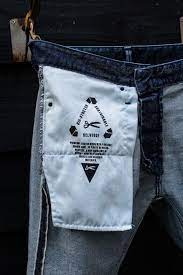The first stretch denim in the world is now available. Candiani Denim, a pioneer in sustainable denim, claims it is 100% natural and biodegradable. Sustainable denim may be entering a new era with the release of its first capsule collection made with Coreva Design and sold at Banner, a high-end fashion boutique in Milan.
About the New Jeans of Candiani
Candiani Denim is the only company to use a special technique for creating Coreva Design fabrics that use plant components with an elasticity generated from natural rubber. This breakthrough produces stretch denim. In addition, it eliminates the need for synthetic fibers, biodegrades in under four months, and has a smaller environmental impact.

The soft, comfy Coreva fabric is available in ecru, indigo, grey, and terracotta. In addition, it is available in the collection’s leisurewear, premium denim, and ready-to-wear items. Premium denim selection can find diverse models. However, the ready-to-wear category can find fashion-forward styles.
The Company’s Aim
Coreva Design aims for selective distribution in high-end department stores globally and markets to those who are ecologically sensitive. The brand places a strong emphasis on vertical production, short supply chains, and ethics.

The ingredients used to give the fabric its stretch are at the heart of the stretch jeans sustainability problem. In order to offer flexibility and comfort, traditional stretch jeans frequently use synthetic materials like spandex (elastane or Lycra). It has raised various sustainability issues raised.
Benefits to the Environment
Non-Biodegradability
Synthetic fibers do not biodegrade easily. In addition, it means that when garments made of these fibers are in landfills, they remain intact for hundreds of years. Thus, this contributes to textile waste and environmental pollution.

Microplastic Pollution
While washing stretch jeans, tiny plastic microfibers shed and pollute waterways and oceans. These microplastics can harm aquatic life and pose risks to human health when they enter the food chain.
Also Read: https://thecitizenscoop.com/house-of-blueberry-introduces-new-collection-of-digital-wearables/
Limited Recycling
The incorporation of synthetic fibers makes it challenging to recycle stretch jeans into new textiles. It reduces the potential for a circular fashion system and increases the overall environmental footprint.




